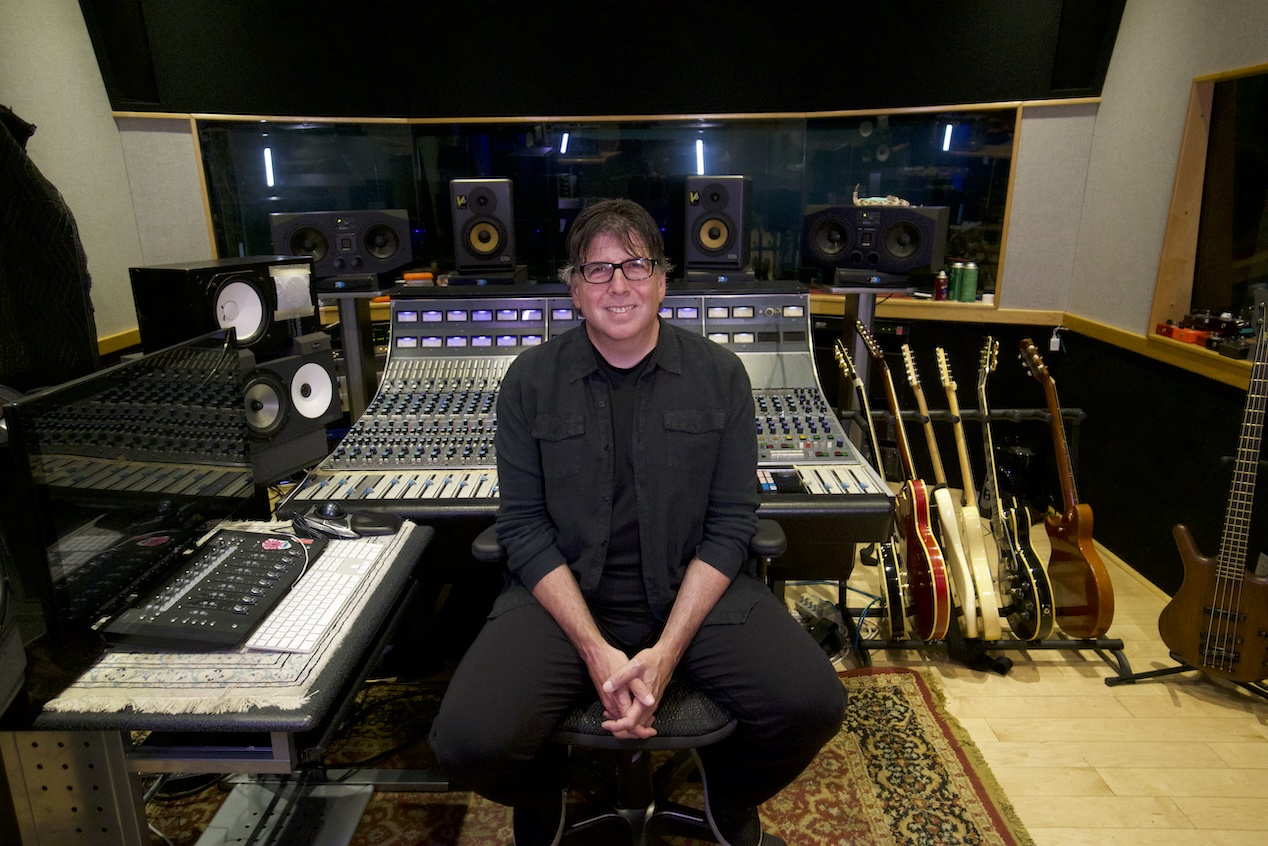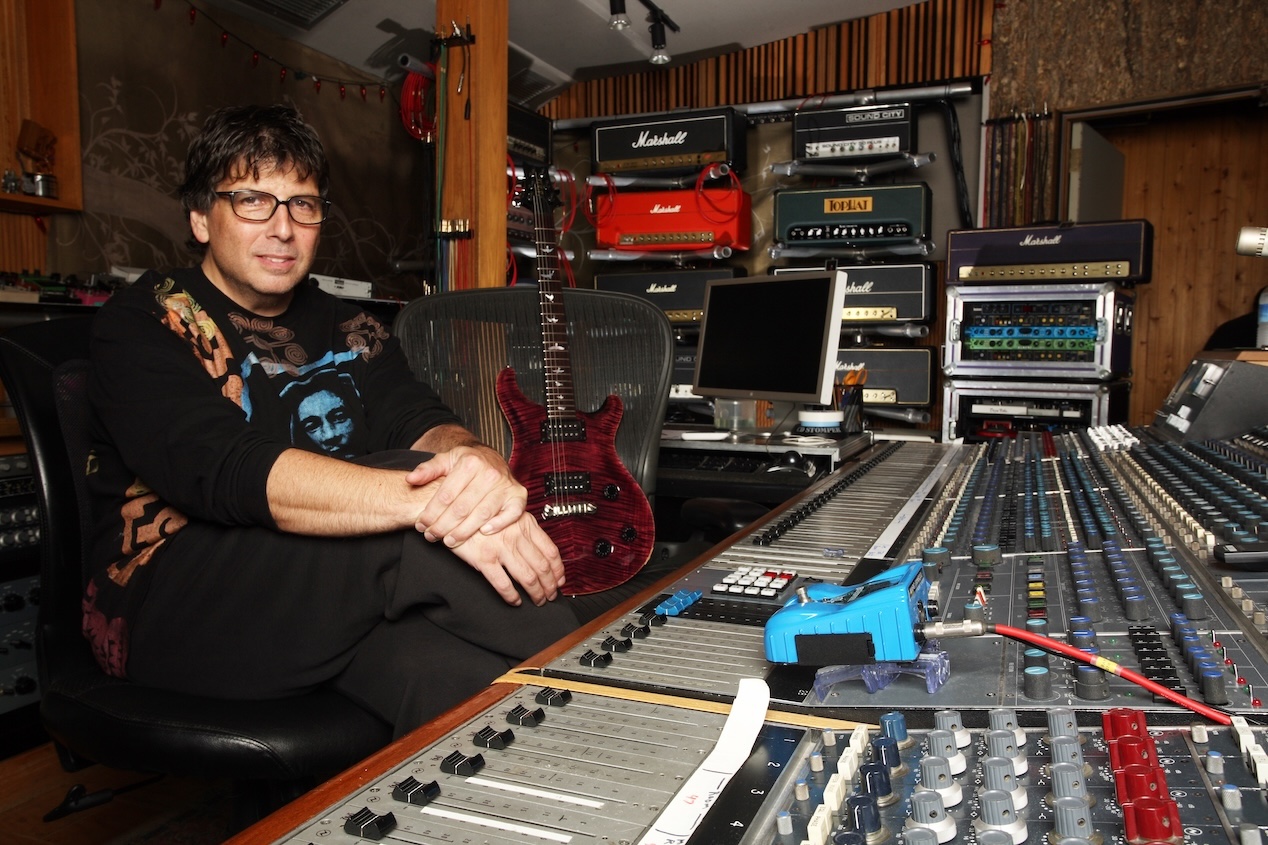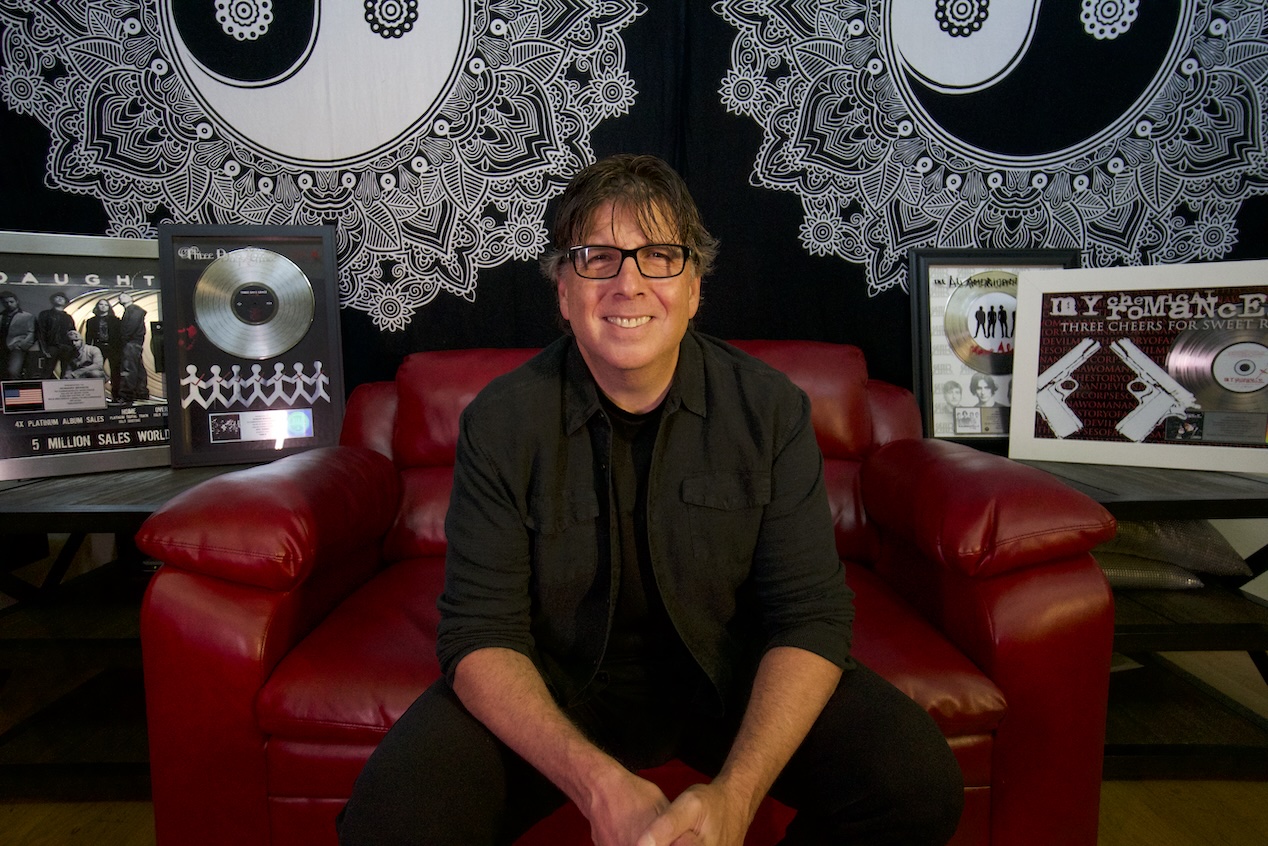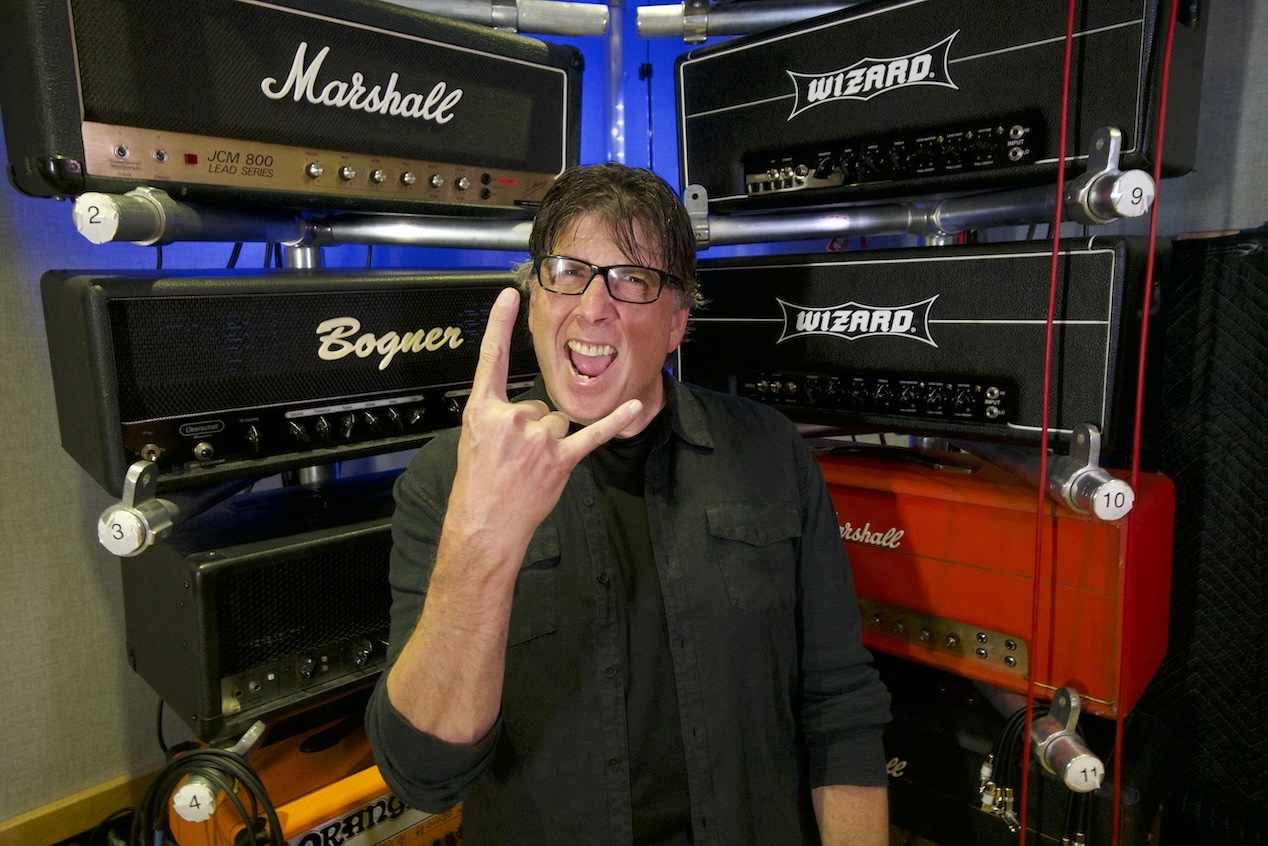
Producer Howard Benson used to be an aerospace engineer. He was also in a band. “We were probably like the worst band in L.A.,” he tells me from his studio in Los Angeles. “But I learned a lot about being the worst band in L.A.”
Ironically, someone even called his band “unproduceable.”
More from Spin:
- Husker Du Albums, Ranked
- Liz Brasher Makes Remarkable Music You Should Know About
- Oregon’s Drug Apocalypse
But being in the studio made him realize that though he may not have a future as a musician, he might have one as a producer. “It fit my whole worldview, the technical part of it and the musical background.”
He started working at Sunset Sound after his shift at Garrett AiResearch, learning the ins and outs of producing. “I was starting to work for free at the time,” he says. “You had to get free studio time back then. And I would work my day engineering from 7:00 a.m. to 3:00 p.m. down in Torrance at the company [Garrett]. And then I’d drive up to Hollywood and work for free in the studios. And I knew someone who was a second engineer so I would work from 6:00 p.m. to 6:00 a.m.”
He discovered a punk band called T.S.O.L. that had an unfinished album. Benson offered to help them finish it as his first production project at Sunset Sound.

After four years, he quit his job at Garrett and decided to give producing full-time a shot. Benson set up a small studio in his house and took on his second band, Jack Mack and the Heart Attack, and eventually a few others like Bang Tango and Pretty Boy Floyd. “These are sort of local bands, and nobody knew who they were, but they were willing to give little ol’ me a chance,” he says. Though the records didn’t sell well, the work gave him the experience he needed to take on bigger bands. “I was honing my craft,” he says. “I met some really key people along the way that I was smart enough to listen to, like Keith Olson, who was a great producer back then and mentored me through some difficult moments in the studio.”
Benson went on to produce Motörhead, Body Count, Kelly Clarkson, Halestorm, My Chemical Romance, and Bon Jovi, among other artists. He’s also won two Grammys.
I chatted with Benson about a lot of things. But the main question I had in my mind was, “What the hell does a record producer actually do?”

Can you walk me through the production process of a song? In other words, what does a producer do?
When I mentor a new person, I say the word “producer.” Just look at the word. It means to produce. It means to deliver the record. It means here’s the record, finished, hand it in. That’s your job. You’re getting paid a lot of money to do that job. You have to go through a lot of barriers. You have to go through a lot of personalities. You have to go through redos. The record company is going to have their comments. The artist is going to have their comments. The lawyers, the managers, they’re all going to have something to say. Your job is to get it done. And it’s a hard job finishing these things. It’s really fun up until the last red zone of a project. Then trying to get the ball over the goal line, that’s the hard part. Nobody ever wants to finish these things. It’s like, ‘Oh wait, it’s not done. It’s not perfect.’ You have to be the one to say to them, ‘Hey, this is it. We got it.’ How you get that across, that’s a talent.
It’s completely different from if I’m producing Kelly Clarkson and if I’m producing My Chemical Romance; they’re completely different projects. With a Kelly record, the material is found by the A&R staff. I’m not even that involved at that point. My job was basically to take the arrangements, get her vocal on it, then come back to my studio here, rearrange the song, and start adding layers to it. Now, if it’s My Chemical Romance, it’s a collaborative effort. We’ll go in and we’ll rehearse, and we’ll kind of go through the material. And I’ll say, ‘You know, this lyric is good. That lyric isn’t good. Maybe you should rewrite a second verse.” On that project we were trying to hunt for hooks and things like that. And then we’ll go in the studio and everybody will play their parts, and we’ll do it together. Then we’ll overdub a part on it. So you’re just basically the fifth member of the band.
I always try to make projects that sound like the project. It wasn’t a Howard Benson record, it was their record.
Some projects are just babysitting. Some projects are amazingly great artists and you just have to make sure they show up. You’re just trying to keep the band from imploding. I’ve done some bands that literally fight the entire time they’re in the studio. Every producer I meet who’s really good has a good sense of musicality, engineering, and psychology, all three things.
I think people hear the word producer and they have this idea in their head of what it may or may not be.
Oh, they have no idea. The producer credit is a really different credit than it was even 20 years ago because so many people take it now. It’s kind of like the same problem they’re having in the movie business where there are a billion executive producers on things. It’s an easy credit for bands to give away because they just go, “Aw fuck it, make them a producer,” you know? But you’re not really doing the producer’s job just because you came up with a guitar part or something like that. But sometimes you can’t fight that battle because the bands just want what they want. And at some point, it just becomes about the money. You just go, “You know what, if you’re going to take my producer credit, you’re going to have to pay me this much to take that credit from me or split the credit with me.” I used to be very precious about that credit. I’m not as precious about it anymore because it’s more common to have multiple producers. It’s like trying to have two coaches coach a football team at the same time. It’s really hard. You know, it’s not that they’re bad guys or anything, but you do see the world differently.

What do I look for when I’m listening to a song or an album for the signs of a good producer?
One thing I’m pretty good at is I listen like a listener. I don’t listen like a professional to new music. I just listen, like the average dude. I don’t even try to analyze it. If I really hate it, it’s probably good. If I really love it, it’s probably good. If I feel absolutely nothing, then the production sucks. I don’t care how good it sounds. My job as a producer is to sell feelings. That’s the job we’re in. We’re in the feeling business. I remember I was doing the All-American Rejects record, and I was doing “Move Along,” and I had to stop doing it. I have a friend who was going through a lot of trouble at that time in his life and I was listening to the lyric that Tyson [Ritter] had written. The lyrics are about getting through the day, step by step, trying to move along. And I just went like, “Oh my God, I just can’t believe how tough his life is right now.” And I went, “This is going to be a hit.”
I read that you said people who don’t use Auto-Tune are nuts.
You’re competing against everybody that’s using Auto-Tune. So your vocals are going to sound pitchy unless you can sing perfectly in tune, which most people can’t. So, yeah. I think you’re nuts if you don’t use it. In fact, my artists now sing through Auto-Tune. They don’t even listen to their voices out of tune, which is crazy. Because I can’t do that, honestly. I can’t get a good performance that way. I need to hear what it really does sound like. So if there’s stuff that’s not in tune, I’m going to leave that. Do you know what I mean? There are a few parts where you have mistakes that become hooks later on, you know, against judgment calls and that stuff.
Can you talk about some of the equipment you use as a producer?
The key to my whole setup, because I do a lot of vocals, is there’s a Sony C-800 mic in the vocal booth. And then you got this Neve here, which is a preamp, and you have this Tube-Tech compressor. And that is the vocal chain that I use. And the Neve basically mitigates a lot of that shrillness because it’s very warm. And the compressor basically keeps the level from killing your computer.
So what happens is, we have a little trick where my engineer will sit next to me, and he’ll actually ride the level. He’ll learn the song that the singer is singing, so we don’t have to use as much compression. So he’ll turn it down on the loud parts and up on the low parts that kind of bypasses the compression sound. So we try to get it into the computer as clearly as possible without anything interfering with the sound. And then in the computer is where you’ll adjust a lot of stuff. I use these tiny little Logitech $70 speakers right here and I mix everything through them because that’s reality to me.
But the main event is a person in front of that microphone in there selling the song to me. I have to feel something, you know? There’s something that happens when you put two people in a room. You just don’t agree. And that’s what you want. You don’t want to agree. My job as producer sometimes is to get people to fight and argue. I’ll just go, “You know what? That doesn’t sound like you really mean it. I think you’re just phoning this in.” Maybe they really aren’t, but I want to see what happens.
To see our running list of the top 100 greatest rock stars of all time, click here.
